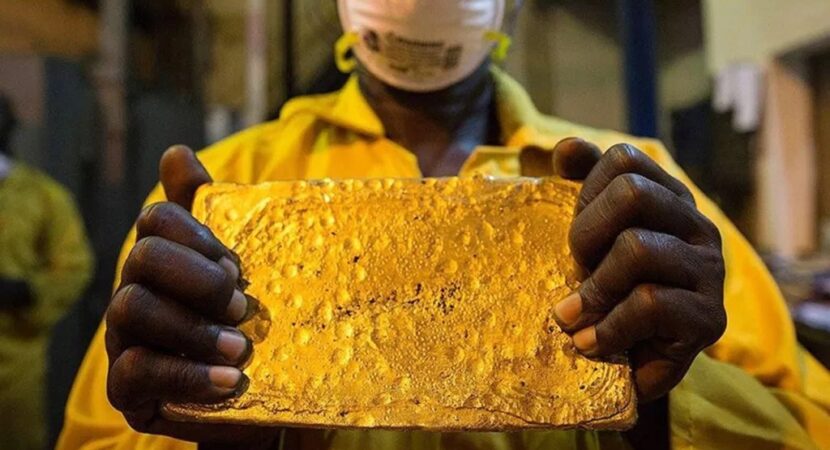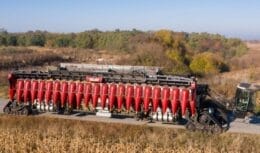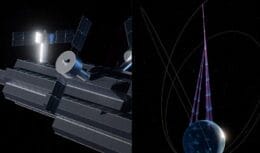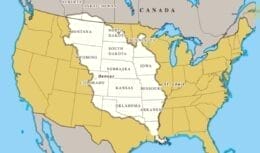
JMC intends to expand gold production in Bahia by up to 31% by 2023. In 2019, the company produced 159,4 ounces – 4,5 tons
In Jacobina (BA), artisanal mining was replaced by industrial ore production. For almost three decades, residents of Canavieiras, Jabuticaba and Itapicuru, in the rural area of the municipality, have had their traditional way of life changed as the industrial exploitation of gold mining grew and they fear a tragedy like that of Brumadinho, according to journalists Nádia Conceição and Edvan Lessado, from the apublica.org portal.
Read also
- Ceará will receive billionaire investment from the Australian multinational Enegix for the construction of a green hydrogen plant in Pecém
- Petrobras loses BRL 28 billion in market value in a single day, after Bolsonaro changes command of the state-owned company
- Energisa invites candidates without experience in all areas at technical and higher levels for 242 internships in SP, MG and beyond
- Multinational pioneer in construction and assembly projects, hires technicians and engineers for mining activities, today February 22
- Coca Cola, the largest multinational producer of non-alcoholic beverages, calls for 67 job openings in SP, RJ, MG, RS and more
Jacobina is located 420 km west of Salvador and is home to two tailings dams resulting from the exploration of gold by JMC, the Brazilian subsidiary of Canadian company Yamana Gold Inc. In the region, the foreign corporation operates four mines: João Belo, Itapicuru, Serra do Córrego and Canavieiras, which together employ at least 2 workers.
Jabuticaba and the other communities lost their gold prospecting with the arrival of the Yamana Gold branch. The intensification of industrial gold production led to the creation of the B1 tailings dam, which has been decommissioned since 2008, and the B2 dam, currently in operation. The latter should remain active until 2036.
Residents fear tragedy
The B2 dam, which is 88 meters high, is in the Low Risk Category (CRI) for collapse, according to the classification list of Brazilian mining dams, by the National Mining Agency (ANM). But both city dwellers, especially in the three main rural communities, and the state Public Ministry warn of the risk of an unprecedented tragedy.
The Public Prosecutor's Office of the Public Ministry of Bahia (MPBA) in Jacobina has already identified flaws in the safety of the dam. On December 2 of last year, the collapse of an internal structure of the gold ore dam put the National Mining Agency and promoters on alert.
According to an ANM document to which the report had access, there was a “partial rupture of the cyclone tailings pile”, probably caused by “heavy rains and internal drainage problems of this structure”, at the B2 dam. There were no casualties, but the solid material buried a company vehicle.
On December 4, the agency banned and immediately suspended the release of tailings from B2. In order for the interdiction to be undone, the ANM recommended that the JMC solve the problems pointed out in the inspection carried out by the Public Ministry of Bahia.
If it broke, the B2 would destroy access roads to other communities, leaving the village isolated.
The fear of the rupture of the gold ore dam puts hundreds of residents of Itapicuru and Jabuticaba in suspense. In addition to them, residents of neighborhoods in the urban area of Jacobina fear a disaster, since they would be in the route of the mud coming from the dam.
The city of Jacobina has an estimated population of 80.635 people, according to the Brazilian Institute of Geography and Statistics (IBGE). It's as if the municipality were doomed to gold because the economy revolves around the exploitation of ore. In the last year, commercialized mineral production in the municipality of Jacobina was R$134 million.
“The fear is, as there was in Brumadinho, in Mariana, a rupture happening and taking hundreds of lives”, says Bonifácio.
Dam break simulation of gold
On the morning of February 22, 2019, after pressure from the community and social movements, with the support of the Public Prosecutor's Office and Bahian authorities, the JMC carried out a simulation of the dam failure, in partnership with the Civil Defense of Jacobina and that of the state to “prepare residents and response teams for emergencies, based on the company’s accident prevention culture”.
Around 400 residents of the communities of Canavieiras, Jabuticaba and Pontilhão – another that would be on the mud route – participated in the unprecedented simulation. All residents were identified by the company; in this way, there is a greater chance of care in a possible post-tragedy period.
press release
In response, the company informs: “Regarding the earthquakes that were reported in various media (radio, print newspapers, television and social networks) in the state of Bahia in recent months, Yamana would like to reaffirm that seismic activity is due to of natural Earth processes. The vast majority of these events are imperceptible to people, but seismic activity is recorded by the Brazilian Seismographic Network (RSBR), between April 2020 and January 2021, around 228 seismic events were recorded in the country, 51 of which in Bahia, 9 in Jacobina”.
“These publications associate the Mineração operation with earthquakes that occurred on a regional scale, but we know that seismic events are not caused by detonations or any other JMC mining activity. Our tailings designs and operations take regional seismic information into account to ensure they can withstand seismic activity. Starting February 25, we will be conducting site-specific seismic monitoring to refine the regional seismic data – this new data will be fed back into our tailings design processes to give us further confirmation that our dams are stable over the long term,” he said. the company
Concern for safety is a premise at JMC / Yamana Gold, he concludes.
Gold mining in Bahia
JMC intends to increase gold production by up to 31% by 2023. In 2019, the company produced 159,4 ounces – 4,5 tons – according to the Economic Development Secretariat of Bahia (SDE). Currently, JMC employs around 1.400 direct and 700 indirect employees, according to information released by SDE in April 2020.
Bahia has 34 registered mining tailings dams. “Bahia is the fourth most important mining state in Brazil, behind Minas Gerais, Pará and Rio de Janeiro, however, according to the National Mining Agency, the agency only has one vehicle to carry out the field activity in the area. all of Bahia, for inspection,” says prosecutor Pablo Almeida.
by – apublica.org










